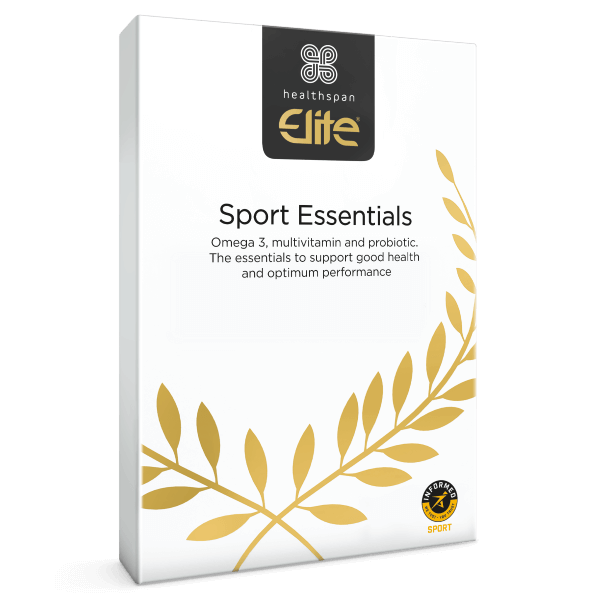Preparing for competition in any sport requires a keen focus on training and nutrition. Dan Ellis, lead nutritionist for LTA, explains how tennis players gear up for tournaments.
As a nutritionist what would your advice be to an amateur player looking to emulate their heroes?
No matter what level the player is at, I'd always encourage players to consider what the food they are choosing to eat is going to do for them and get them to think about 'building a feed'. This way they think about how the foods and the quantities that they've chosen to put on their plate will help their tennis.
For example, what is the quality lean protein source that will help my muscles to recover and get stronger? What is the carbohydrate source to keep me fuelled and is there the right amount for the activity demands? Where is my colourful mix of vegetables that will support my immunity and keep me on-court playing tennis rather than getting ill? Where are my essential fats coming from to help transport the vitamins?
How do you work with players in the lead up to a major event?
A key aspect is trialling match day nutritional timelines. For some players, this is continually being adjusted and improved, while others know what works for them and stick to it. When being exposed to so many different cultures, they need a foundational plan that they can utilise wherever they are in the world be it the USA or Japan, Nigeria or the UK. What are they going to eat at what time and how much of it? What are the priorities at any given time? A basic nutritional knowledge becomes important, given the nomadic nature of tennis it is impossible to be with each player on match day and so I need to develop autonomous players that make the correct informed nutritional decisions wherever they are in the world.
Also, trialling and fine-tuning their on-court feeding protocol to make sure they are fuelling sufficiently with foods, snacks or supplements that are rich in carbohydrate and that digest quickly and easily to ensure they don't feel bloated, full or need to dash to the toilet during the match.
When players are in a tournament, what role does nutrition play? Is it tricky to work around different match scheduling?
A tricky element can be that the player doesn't really know their start time, unless they are on first, of course, and even then, the weather might have different ideas. Sometimes choosing what to eat and when to eat it, is a challenge when match start times are getting pushed back. Once the player has eaten their pre-match meal (around 3hrs before), it becomes a case of simply topping up to keep blood sugars stable. The last thing they want is a big meal and a sudden urge to have a nap just as they walk onto court.
Supplements are particularly useful in overcoming scheduling challenges. Bars and gels have a role to play, or sometimes I will advise players to take Healthspan Elite's Kick-Start Caffeine Gum. This supplement can be taken 10-15 minutes prior to a match with a fast release-85% absorption rate to reap the full benefits of caffeine. A great quick fix to boost the player's capacity and increase their attention span and alertness.
Late finishes are another aspect, sometimes the feed window is small and can make replenishing their fuel stores ready for the next day, a challenge. In this time period, the focus is not only protein to repair the muscles, but also higher GI (glycemic index) carbohydrates that digest quickly, get into the bloodstream and then into the muscles rapidly, meaning they can eat a bit more in that time period and get more fuel back in the tank.
What strategies do you use during a match?
The priority during a match is hydration and carbohydrate intake. The specifics vary from player to player with some opting for carbohydrate drinks, energy gels and bars, dates or the classic banana.
Each player also has specific hydration protocols matched to their individual sweat rate and sodium concentration. It is well known that dehydration can be detrimental to performance, increases cardiovascular strain and reduces the ability to sweat, the body's primary mechanism to regulate core temperature. Some scorching temperatures and high humidity experienced on some courts around the world puts a large emphasis on the importance of the maintenance of hydration before and throughout the match.
Healthspan Elite's Active Hydrate provides a helping hand when playing in hot and humid environments for sustained periods of time. It replenishes the electrolytes lost through sweat. This helps to avoid symptoms of dehydration, increasing energy levels, sharpening attention and aiding muscle function.
The players spend a lot of time travelling, how does this impact the way they eat? Does travel have a negative effect on the players' health? If so, how do you manage this?
Maintaining good hygiene, sleep, nutrition and hydration habits, can minimise any potential impact from travel. Ensuring immunity and gut health is bolstered through quality nutrition, way before boarding the flight, is key. Once at the destination, the quality of provision is varied, occasionally options are sub-optimal to say the least. For example, at some location's vegetables can be scarce, so the players ensure they use a daily multivitamin such as Healthspan Elite Sport Essentials or travel with a greens powder to ensure adequate intake during these periods.
Healthspan Elite's Sport Essentials is a great coverall. It contains a multivitamin for all-round good health, a probiotic containing friendly live bacteria to support immune and gut health and an omega 3 with high levels of the beneficial fatty acids DHA and EPA, to support numerous bodily functions, such eye, heart and brain health.
Is there a role for supplements in professional tennis?
A 'food first' approach is highly recommended, at times this is not always the optimal strategy in situations such as a nutritional deficiency, electrolyte replacement, in-match fueling and post-match recovery solutions, or poor availability in remote locations when supplementation is essential to maintaining health and performance.
I always recommend that players choose supplements that have been independently batch tested and are Informed-Sport accredited. This provides peace of mind that they aren't going to fail a drug test due to inadvertent contamination of products during manufacture. Having Healthspan Elite as a partner ensures that LTA supported players have access to supplements of the highest quality.

Elite Sport Essentials
Three essential supplements to support good nutrition and optimum performance
- Multivitamin, omega 3 and probiotic
- Convenient daily tear strips
- Supports energy levels, recovery and digestive health










